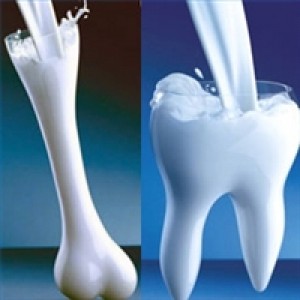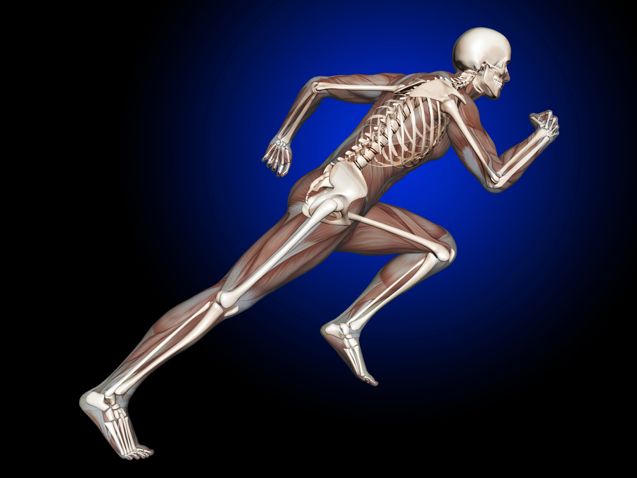HEALTH TODAY
What is calcium & how does it build strong bones?

Calcium is a mineral that helps bones stay strong. Our bodies continually remove small amounts of calcium from our bones and replace it with new calcium, a bone "remodeling" process. If the body removes more calcium from bones than it replaces, they slowly become weaker and more prone to breaking. Eating a diet rich in calcium allows the body to deposit calcium in bones so they stay strong.
Children and teens who eat calcium-rich foods build up stores of calcium in their bones that help them maintain strong bones for life. By getting lots of calcium when you're young, you can make sure your body doesn't have to take too much from your bones. Bones have their own "calcium bank account," so "depositing" as much calcium as possible during your tween and teen years will help you reach your peak bone mass. By the end of the teen years, the account "closes"―you can't add any more calcium to your bones. You can only maintain what is already stored to help your bones stay healthy.
Children's Bone Health and Calcium: Condition Information
Overall Bone Health
Healthy bones enable children to stand up straight, walk, run, and lead an active life. Calcium is one of the key dietary building blocks to develop strong bones. Because bone growth is rapid during the adolescent years, this is when excellent nutrition, including adequate amounts of calcium is especially important.
Developing strong and healthy bones during childhood may help prevent fractures and avoid osteoporosis later in life. Osteoporosis is a disease in which the bones become thin and weak and break easily. This condition usually appears later in life, but it develops slowly, and early signs of this bone disorder may start in childhood. The best defenses against osteoporosis are eating a well-balanced diet that contains plenty of calcium and taking part in regular physical activity.
Bone Health and Childhood
About one in ten girls and fewer than one in four boys ages 9 to 13 are at or above their adequate intake of calcium. This lack of calcium has a big impact on bones and teeth. Your body continually removes and replaces small amounts of calcium from your bones. If your body removes more calcium than it replaces, your bones will become weaker and have a greater chance of breaking. Children and adolescents establish bone health, which serves as an important foundation to last a lifetime.
The adolescent years are a time of rapid bone growth. For example, teenagers can build more than 25% of their adult bone mass during the adolescent years of peak skeletal growth. By the time teens finish their growth spurts at around age 17 years, more than 90% of their adult bone mass is established.
How much calcium do children & teens need?

Calcium needs differ depending on a child's age:
| At ages | Children and teens should consume this much calcium every day: |
|---|---|
| Younger than 6 months | 200 mg/day |
| 6 ot 12 months | 260 mg/day |
| 1 to 3 years | 700 mg/day |
| 4 to 8 years | 1,000 mg/day |
| 9 to 13 years | 1,300 mg/day |
| 14 to 18 years | 1,300 mg/day |
Many children and teens do not get enough calcium. One large survey found that among children aged 9 to 13 years, only about 12% of girls and 17% of boys consumed the recommended daily amount of calcium. For older teens, 42% of boys and only 10% of girls consumed enough calcium daily
